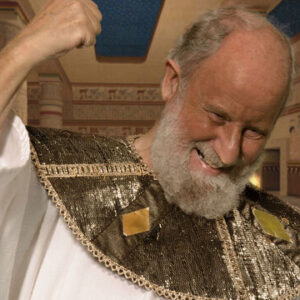We li ve in a crazy, mixed-up world. While battles are fought on the Senate floor to control the sale of guns in hopes of saving “just one life,” plans are drawn up to provide government money for abortions by the millions. While fighting to save one life, the same people are funding unnumbered deaths. How obvious it is that when God is removed from the thought process, there is no moral compass that discerns good and evil, right and wrong. In a recent blog, a young lady wrote, “To me, the fetus is on the bottom of the totem pole. It does not feel emotional pain, does not have conscious thoughts, and does not have big dreams to be a big shot football player someday. It does not have friends or families with which it has made intimate connections. It does not have career or life goals. It does not fear death because it does not have the mental capacity to understand what death is. And to me these are the things that make us human and give us worth.”
ve in a crazy, mixed-up world. While battles are fought on the Senate floor to control the sale of guns in hopes of saving “just one life,” plans are drawn up to provide government money for abortions by the millions. While fighting to save one life, the same people are funding unnumbered deaths. How obvious it is that when God is removed from the thought process, there is no moral compass that discerns good and evil, right and wrong. In a recent blog, a young lady wrote, “To me, the fetus is on the bottom of the totem pole. It does not feel emotional pain, does not have conscious thoughts, and does not have big dreams to be a big shot football player someday. It does not have friends or families with which it has made intimate connections. It does not have career or life goals. It does not fear death because it does not have the mental capacity to understand what death is. And to me these are the things that make us human and give us worth.”
When did our sense of morality get turned upside down? When did people lose their bearings? Isaiah was no stranger to that same question: “Woe to those who call evil good and good evil, who put darkness for light and light for darkness, who put bitter for sweet and sweet for bitter. Woe to those who are wise in their own eyes and clever in their own sight” (Isaiah 5:20,21).
In the mid-1970s, Dr. George-Paulsen (Geriatrics Magazine) wrote, “How long shall life be preserved when there is no redeeming social value? If life has no apparent purpose, perhaps it is to the benefit of others that such lives not be salvaged.” Today such a mind-set has become prevalent in society. Somewhere along the way, our focus was taken off the sanctity of life and replaced by the quality of life. The Bible teaches that life must continue regardless of the quality experience. Being unwanted, mentally unstable, old or unable to contribute to society must not be the measure that determines life or death. Rather, the guide should be that every human life harbors an immortal soul and should be protected at all cost.
The devaluing of human life can be traced back to the book of Genesis. There once was a man named Lamech. He was of the family of Cain, the first man who devalued human life by killing his brother. Lamech married two women (the first mention of polygamy in Scripture). And Lamech bragged to his wives, “I have killed a man for wounding me, a young man for injuring me” (Genesis 4:23). That in itself showed a disregard for human life. But he continued, “If Cain is avenged seven times, then Lamech seventy-seven times” (4:24). A reference to the Lord’s curse on anyone who harmed Cain (Genesis 4:15) became a battle cry for this egomaniac. Lamech was ready to show those around him that he reigned supreme. If anyone so much as harmed him, he would snuff out that life in a moment. He was now judge, jury, and executioner.
What is the value of human life? If you look on the Internet, you might find any number of contradictory answers, but each is on one of two sides of the issue. Either the value of life is useless as it was to Lamech, or it is accepted that God has a plan for everyone. David wrote, “All the days ordained for me were written in your book before one of them came to be” (Psalm 139:16). Let us continue to rely on the love of the Lord who felt each of us worthy of his death on a cross. God holds the keys, for he is the Maker. “Shall what is formed say to him who formed it, ‘Why did you make me like this?’ Does not the potter have the right to make out of the same lump of clay some pottery for noble purposes and some for common use?” (Romans 9:20,21). So whether we live in a palace or a shack, have never been sick a day in our lives or are confined to a bed, each life abides by the design of the potter, each has been fashioned individually, and each carries the same breath of life. Every piece of pottery has a purpose, a plan, and a place.
Prayer thought: Pray for our country that it might realize its error and end the evil of abortion.
